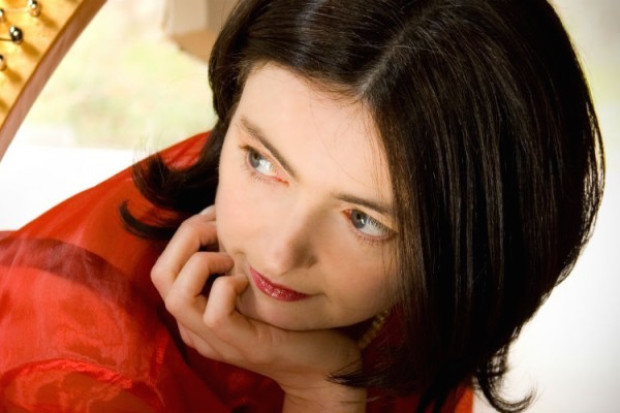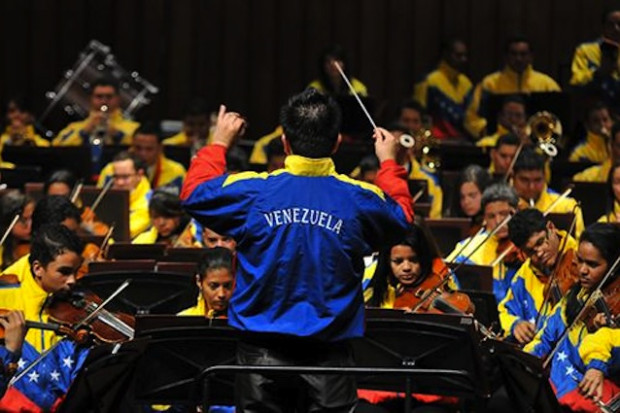Editorial: Education v. Branding
Many who have had the benefit of a music education are surprised to learn how many others go without. Ireland, the musical nation, with a harp on its coins and one of Europe’s strongest folk music traditions, compares poorly to other European counties in the provision of music education. For those who are passionate about music education, and the education of a child generally, this is an intolerable situation. Its repercussions are felt throughout Irish musical life – see, for example, Benjamin Dwyer’s comments on page 18 regarding the effect this has had on contemporary music in Ireland. The same thing could be said, in some respects, about the treatment in Ireland of traditional music through the years.
It all points back to a blind spot at the very heart of Irish musical life. Attempting to rectify this, Music Network’s new ‘Local Music Education Services’ (LMES) proposal, which Martin Drury introduces on page 14, is a truly intriguing and innovative model for the future, and one that we should all be pushing for (not least because the Government is already behind schedule with regard to the report’s suggested implementation plan!).
Strengthening what is already taking place in schools, and providing a wide range of opportunities outside it – to children of all backgrounds – a model such as LMES is crucial if we purport to cling to any notion of a child-centred education. The education we should be envisioning for Irish children is one that encourages them to think, independently and creatively, and to question, openly and constructively, but how much more difficult must this be to achieve without a decent music education? Imagine if music education were to establish itself as an integral part of every Irish child and teenager’s life, might it be the Trojan horse that jolts the conveyor belt model of education which presently prevails?
We have, traditionally in Ireland, taken for granted the efforts involved in giving a child a music education. The fact is that some children are privileged, either geographically, through their parents having money, or through having music in their home already, and some aren’t. So what about those who are left out? It is not that they don’t receive any form of music education, not only because primary and secondary schooling make some allowance for it, but also because they will naturally experience music in their lives, and the form this experience takes will ‘educate’ them ‘musically’. However, that parallel music education, which children receive from the earliest age, can be more commercial intrusion than anything else and signifies the type of education in store for them if more serious music educational provision is not made in their schooling and outside it.
Take, for example, the case of two pre-schoolers by the name of Oliver and Ruby, aged three-and-a-half and four months respectively. There is as yet no formal music education in these very young children’s lives. The house they live in is a musical one, with various musical instruments which they have easy access to. One can only be aware that, at the very least, they are privileged to have that choice. They are played to and sung to, in no organised manner, with no particular aim in mind other than it is entertainment for them and for their parents too. But even in this situation, one must also note the ‘music education’ that goes alongside it, one generated by television, videos, toys and other children’s entertainment.
One doesn’t need specialised research to know that the music a child is exposed to or partakes in shapes their musical sensibilities. It’s sophistication or simplicity or triviality will ultimately shape the child’s taste. Exposure and repetition is everything. Giving them a really positive, quality musical experience at an early age is not about creating prodigies, it is simply getting them to embrace singing, making music and listening as an independent and fulfilling activity in itself.
In homes that do not have an experienced musician or singer in the family, song is the first most obvious introduction for toddlers to music making. However, one of the first things many new parents openly acknowledge is just how few songs they actually know. Aside from the most basic nursery rhymes, parents find they can’t get by the first line or verse of all those songs they thought they knew. Into this void slips television and film theme-tunes and the accompanying CD and tape merchandise. Hearing one’s toddler recite Bob the Builder or the theme tune from Bear in the Big Blue House the first few times can be only adorable, but after a while a parent might start to wonder how they can move their child on to the next level and release their pre-schooler from a TV branded music education. Television and videos can, of course, also be of great assistance in helping parents teach their children music and song, but the over-reliance on them defeats the ultimate purpose.
It is also worth noting that the range of songs that toddlers and children are generally exposed to is incredibly limited. The melodies that are reproduced on children’s toys – trains, electronic learning tools, teddies, and so on – and on musical books and storybooks with accompanying tapes, is terribly small. More often than not, it centres around ‘Twinkle, Twinkle Little Star’, ‘Three Blind Mice’, ‘London Bridge is Falling Down’, and ‘Row, Row, Row Your Boat’. In an age of global toy corporations there can be no regional diversity, and all the children of the world, before they can even read, save those who might have live music in the home, are subjected to the same homogenous diet of tunes, songs and theme tunes.
Mention must go to initiatives such as the two collections by singer Pádraigín Ní Uallacháin, A Stór ‘s A Stóirín (songs in Irish, with Garry Ó Briain) and When I was Young (songs in English, with Len Graham) – see www.irishsongs.com – which are excellent attempts to bring back into use many traditional songs for children. But while fine efforts like these take place, the real blockage is caused by the equivalent of a dumbing-down campaign being enacted against toddlers’ musical sensibilities which really requires that parents consciously step in and obstruct it.
Recently, it was realised that the tape Oliver was playing in his little tape-recorder at night-time was a Marks and Spencer tape that must have come free with some shopping or a toy. Sure enough, this was the musical equivalent of a plastic bag, with truly cheap, badly sung arrangements of ‘Twinkle Twinkle’, et al. It was quickly replaced.
It is ironic that while parents worry about such matters as their children eating their dinner, and getting enough fresh air, the musical equivalent of GM crops may be entering their mind every night as they go to sleep. If our education system doesn’t help parents out with the music education of their children, who will? Marks and Spencers, The Barney Show and Bob the Builder, and their respective sales and marketing departments, will no doubt be volunteering.
This is just a small indication of what occurs before children get to school, how their ideas about music are shaped by products whose priority is not music, and rarely even children. If a well-thought-out music education is not ingrained into their education, they will hardly question this environment, and all the more isolating will it be for those young musicians and composers who do.
Published on 1 September 2003
Toner Quinn is Editor of the Journal of Music. His new book, What Ireland Can Teach the World About Music, is available here. Toner will be giving a lecture exploring some of the ideas in the book on Saturday 11 May 2024 at 3pm at Farmleigh House in Dublin. For booking, visit https://bit.ly/3x2yCL8.














